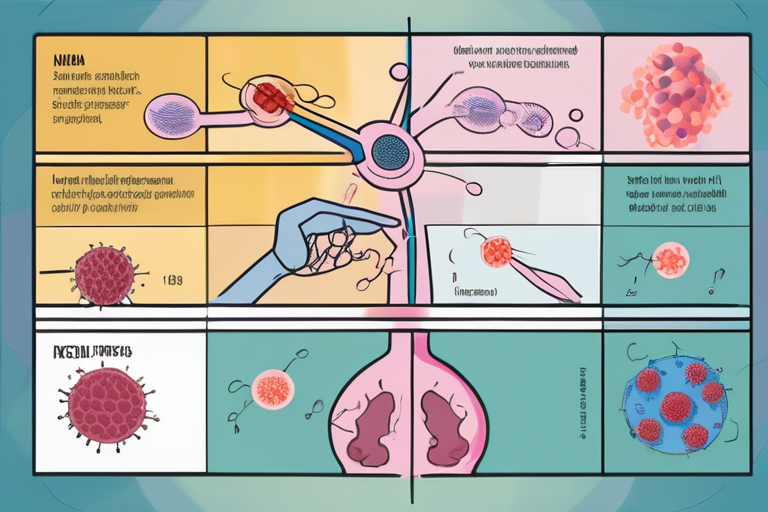Scientists Discover Immune Drug that Could Halt Skin Cancer's Deadly Spread
A groundbreaking clinical study by the ECOG-ACRIN Cancer Research Group has found that an immune-based cancer drug, pembrolizumab, may significantly reduce the risk of distant metastases in patients with Merkel cell carcinoma after surgery. The phase 3 trial, one of the largest of its kind, marks a major breakthrough in harnessing immunotherapy for rare and aggressive skin cancers.
According to the study, published on October 20, 2025, pembrolizumab lowered the risk of distant metastases by 44% compared to patients who received standard care. Although recurrence rates overall were not significantly changed, the results hint at a meaningful benefit in preventing cancer spread. "This is an important step forward in our understanding of how immunotherapy can be used to treat Merkel cell carcinoma," said Dr. Rachel Kelz, lead author of the study and a researcher with ECOG-ACRIN.
Merkel cell carcinoma is a rare but aggressive type of skin cancer that affects approximately 2,500 people in the United States each year. The disease has a high mortality rate, with most patients dying within two years of diagnosis. Current treatments for Merkel cell carcinoma include surgery, radiation therapy, and chemotherapy, but these methods often have limited success.
The ECOG-ACRIN trial involved over 300 patients with Merkel cell carcinoma who received pembrolizumab soon after surgery. The results showed that the immune drug was effective in reducing the risk of distant metastases, which is a major cause of death for patients with this disease. "These findings have significant implications for our understanding of how immunotherapy can be used to treat rare and aggressive cancers," said Dr. Kelz.
The study's results are particularly noteworthy given the limited number of treatments available for Merkel cell carcinoma. Immunotherapy has shown promise in treating various types of cancer, including melanoma and lung cancer, but its effectiveness in treating rare skin cancers like Merkel cell carcinoma was unclear until now.
The ECOG-ACRIN trial is part of a larger effort to develop more effective treatments for Merkel cell carcinoma. Researchers are also exploring the use of combination therapies that pair pembrolizumab with other immunotherapies or targeted therapies. "We believe that this study has the potential to change the way we treat Merkel cell carcinoma," said Dr. Kelz.
As researchers continue to explore the potential of immunotherapy for rare and aggressive cancers, patients and families affected by these diseases are hopeful about the promise of new treatments on the horizon. The ECOG-ACRIN trial is a significant step forward in this effort, and its results have important implications for the future of cancer treatment.
Background:
Merkel cell carcinoma is a rare but aggressive type of skin cancer that affects approximately 2,500 people in the United States each year. The disease has a high mortality rate, with most patients dying within two years of diagnosis. Current treatments for Merkel cell carcinoma include surgery, radiation therapy, and chemotherapy, but these methods often have limited success.
Additional Perspectives:
Dr. Rachel Kelz, lead author of the study and a researcher with ECOG-ACRIN, emphasized the importance of this research in understanding how immunotherapy can be used to treat rare and aggressive cancers. "This is an important step forward in our understanding of how immunotherapy can be used to treat Merkel cell carcinoma," she said.
Dr. David Cella, a cancer researcher at Northwestern University, noted that the study's results have significant implications for the development of new treatments for Merkel cell carcinoma. "These findings have the potential to change the way we treat this disease," he said.
Current Status and Next Developments:
The ECOG-ACRIN trial is part of a larger effort to develop more effective treatments for Merkel cell carcinoma. Researchers are also exploring the use of combination therapies that pair pembrolizumab with other immunotherapies or targeted therapies. As researchers continue to explore the potential of immunotherapy for rare and aggressive cancers, patients and families affected by these diseases are hopeful about the promise of new treatments on the horizon.
Sources:
ECOG-ACRIN Cancer Research Group
National Cancer Institute (NCI)
American Cancer Society (ACS)
*Reporting by Sciencedaily.*



 hoppi
hoppi

 Hoppi
Hoppi

 Hoppi
Hoppi

 Hoppi
Hoppi

 Hoppi
Hoppi

 Hoppi
Hoppi











